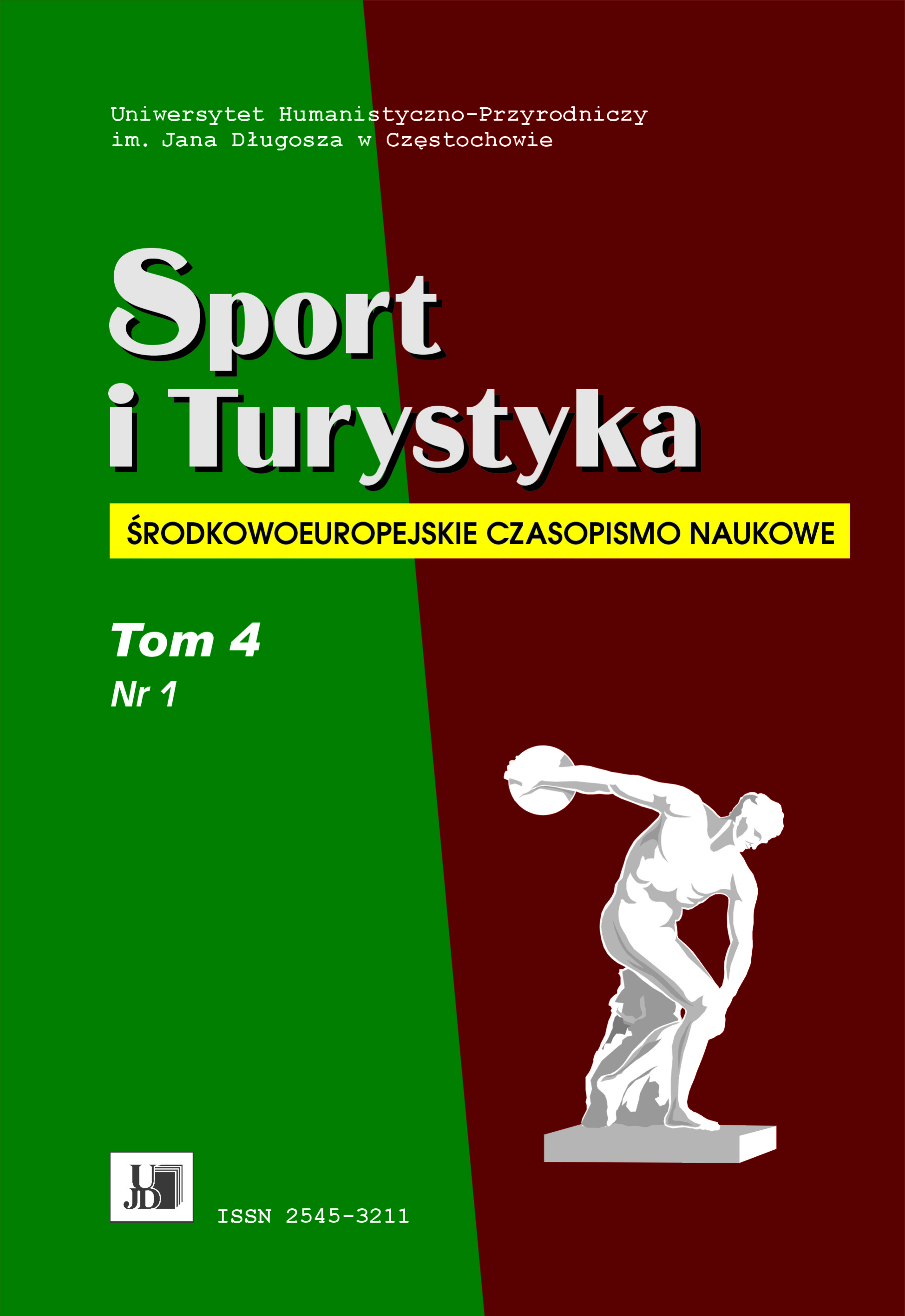Abstract
Contemporary football requires from players a high level of fitness and efficiency on the pitch. Match statistics display an increased number of short-term movements of high intensity. Due to the changes in the nature of this sports discipline, optimal proportions of shaping motor parameters in football training are sought for.
The aim of the research was to learn how plyometric training influences better results in long jump and decreased sprint time for the distance of 5m in a selected group of young players from Akademia Raków Częstochowa football club.
24 football players from Akademia Raków Częstochowa football club, aged 16–18, were subject of the research.
After using plyometric training, there were statistically relevant better results obtained, both in long jump (p < 0.001) and in a 5m sprint (p < 0.001). One could also notice negative correlation between the jump length and 5m sprint time. The obtained result was statistically relevant (p < 0.001).
The use of a selected set of plyometric exercises in supplementary football training in Akademia Raków Częstochowa football club led to better results in long jump without a run-up and shortened 5 m distance sprint time. The results were observed already after 8 weeks of training.





